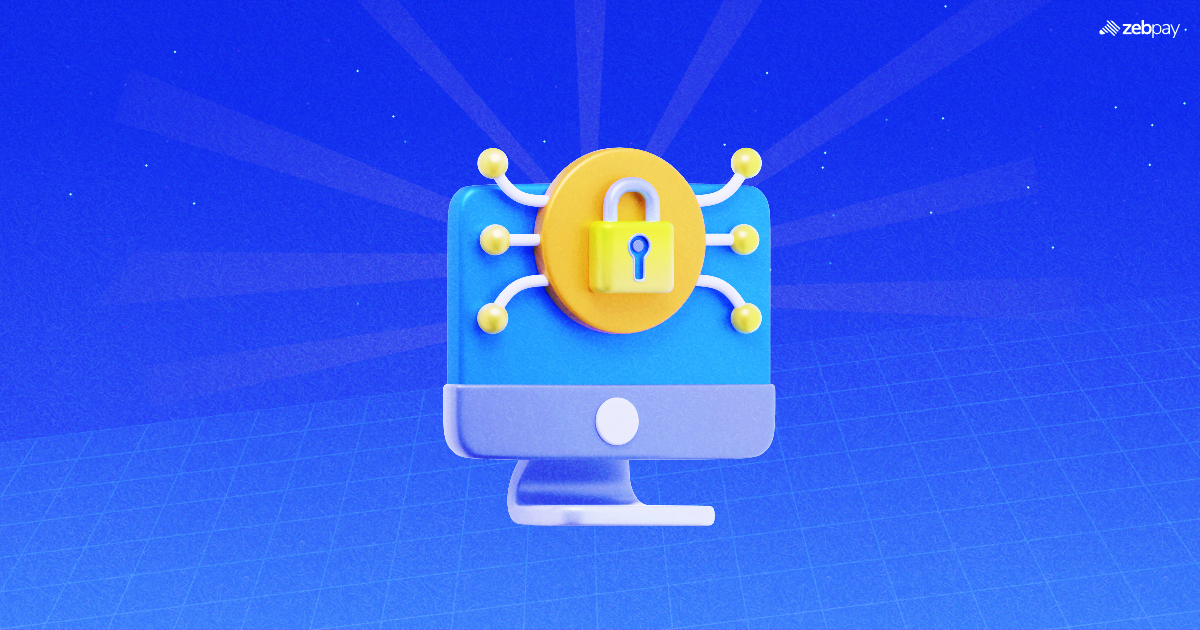The Metaverse is considered the next iteration of the internet; it is a shared immersive 3D virtual space where users can have immersive online experiences which they cannot have in the physical world. It will bring the digital and physical worlds closer with features like artificial intelligence, 3D graphics, AR and VR inputs, decentralization, and an enhanced user experience.
User data security is vital for the successful adoption of the metaverse. The Metaverse space has witnessed few cyberattacks such as data breaches, digital identity theft, and VR and AR device hacks in the recent past. The metaverse stores an immense amount of sensitive user data, such as digital assets, transaction data, and other personal user data. It is essential to protect user data to prevent losses and maintain user trust.
Understanding the Metaverse
The metaverse removes physical limitations and provides users with many different experiences that they cannot enjoy in the physical world. It is building a creator economy where users can create digital experiences or assets using various Metaverse tools and apps. Security risks are always inherent in any technology, and here are some of the top Metaverse security concerns.
Data privacy
Metaverse users engage in various activities and create digital avatars that could reveal personal data. Criminals can take advantage of this data to cause significant financial losses.
Cyberattacks
The Metaverse, like other digital platforms, is vulnerable to cyberattacks such as ransomware attacks, hacking, and phishing.
Digital asset theft
Users can earn or collect virtual assets such as crypto tokens or other rare digital assets. These digital assets are not always secure, and criminals could steal them, leading to real-world financial losses.
Read more: Future of the Metaverse
Data Privacy and Consent
Collection and utilization of user data is one of the vital challenges to privacy in the Metaverse. User data privacy and consent have raised concerns about compliance with data policies. The metaverse relies on collecting extensive user data such as location data, and other personal information to function.
Transparency is a vital feature for user privacy rights and protection. The ability to identify the source of each piece of data is essential, as Metaverse data can originate from multiple sources. Metaverse data can be regulated through anonymization or regulations like the General Data Protection Regulation(GDPR). Metaverse users can manage their consent settings for data collection, enabling them to modify or revoke consent whenever they choose to do so.
Decentralization and Self-Sovereign Identity
A decentralized identity system is the solution for the issue of secure digital identity in the Metaverse. These identity systems are not controlled by a single centralized entity but are distributed to multiple nodes. Decentralized identity systems have three vital parts: blockchain, decentralized identifiers (DIDs), and Verifiable Credentials (VCs). This technology can have multiple applications, such as managing employee IDs, producing fraud-proof or authentic certifications, and ensuring supply chain traceability. It enables Metaverse users to own and control their digital identity without intermediaries. It significantly improves data security through features such as public-key cryptography to encrypt and decrypt sensitive data securely. A decentralized or self-sovereign identity system reduces the risk of cyberattacks because it stores lesser user data.
Read more: Understanding Private and Public Keys
Encryption and Secure Communication
Metaverse offers end-to-end encryption, which is vital for user data privacy. It enables Metaverse users to send messages, take conference calls, and collaborate without intermediaries such as cloud platforms having access to private data. Metaverse users feel secure that their sensitive data is being stored safely and is only visible to them. Users have the option to manage their sensitive information in an encrypted way. Metaverse platforms can implement end-to-end encryption for user communication within their ecosystem to ensure every interaction remains private. Pseudonymity can be achieved using encryption techniques; users can interact with various metaverse protocols without revealing their real identities.
Secure Storage and Data Management

The Metaverse can offer users different methods, such as biometrics, to secure their sensitive data. Metaverse developers should build secure storage and data management systems into their platforms. These systems can handle and protect users’ data in a more secure and decentralized manner. User data management systems can help Metaverse platforms manage immense amounts of data and operate smoothly.
User data storage best practices, such as user access settings and multi-factor authentication, should be followed by Metaverse platforms. Strong data policies should be implemented for storing and using user data in the Metaverse to limit the misuse of sensitive data. Metaverse applications should also have data backup and recovery mechanisms, as a huge amount of sensitive data is exchanged at lightning speed.
User Authentication and Access Controls
Metaverse developers can use the same security tools as Web 2.0, such as passwordless access and multi-factor authentication, to secure user data and prevent unauthorized access. Security and access controls can help simplify employee access to how and with whom they communicate and collaborate. They can help employees maintain the same identities across multiple email systems and the Metaverse. Platforms should implement these innovative features to position themselves better when the Metaverse gains greater adoption. Metaverse platforms should mainly implement robust user authentication and access control systems to protect against data breaches, unauthorized access, or cyberattacks.
Read more: Metaverse is Transforming E-commerce
Auditing and Compliance
Regular security audits involve systematically reviewing security and user access control systems to ensure they are operating as intended. Security audits should be conducted frequently, especially after significant updates or changes to the Metaverse platform. They can help identify vulnerabilities in the system before being exploited by hackers. Security audits are critical in Metaverse development as they ensure platforms are complying with data security regulations while adopting best security practices. Auditors can help platforms develop data and security policies that are customized to the metaverse. The Metaverse is still relatively new, and many existing digital regulations do not apply to it, but auditors can still follow existing regulations such as GDPR when developing data privacy and security compliance strategies.
Collaboration and Trust Building
Virtual workspaces eliminate the need for travel, reducing time and cost. Virtual events in the metaverse can help companies save on expenses such as logistics and venue rentals. The Metaverse promotes collaborative efforts between platforms and developers to create unique applications and solutions to real-world issues. The Metaverse enables asynchronous collaboration where users can work on projects at different times, avoiding time zone restrictions and allowing flexible work arrangements.
Establishing and maintaining user trust is essential for Metaverse platforms. Metaverse blockchain technology offers unique solutions to address trust concerns in the virtual space. Robust, transparent data practices can help make new technologies more trustworthy.
Read more: Metaverse vs Virtual Reality
Conclusion: Protecting User Data in the Metaverse
The metaverse offers multiple methods to protect user data, such as decentralized identity systems, communication through encryption, and multi-factor authentication. User privacy and data protection are essential to the metaverse. It leverages blockchain technology to enhance user empowerment and privacy within its ecosystem. The Metaverse can provide a more secure platform for users to engage and collaborate while protecting their data by incorporating privacy-centric solutions and leveraging blockchain technology.
To stay up to date with the latest crypto news, visit ZebPay blogs. Click on the button below to trade on ZebPay.
Frequently Asked Questions (FAQs)
What steps can users take to protect their data in the metaverse?
Users can use decentralized identities, encrypted communication channels, and multi-factor authentication to protect their metaverse data.
How can metaverse platforms ensure data privacy and security?
Metaverse platforms implement robust user authentication and access control systems to protect against data breaches, unauthorized access, or cyberattacks.
What are the potential risks of data breaches in the metaverse?
The metaverse collects an immense amount of user data and any data breaches could lead to identity theft, financial loss, and loss of sensitive data.
How do metaverse platforms handle user consent and data sharing?
Metaverse users can manage their consent settings for data collection, enabling them to modify or revoke consent whenever they choose to do so.







